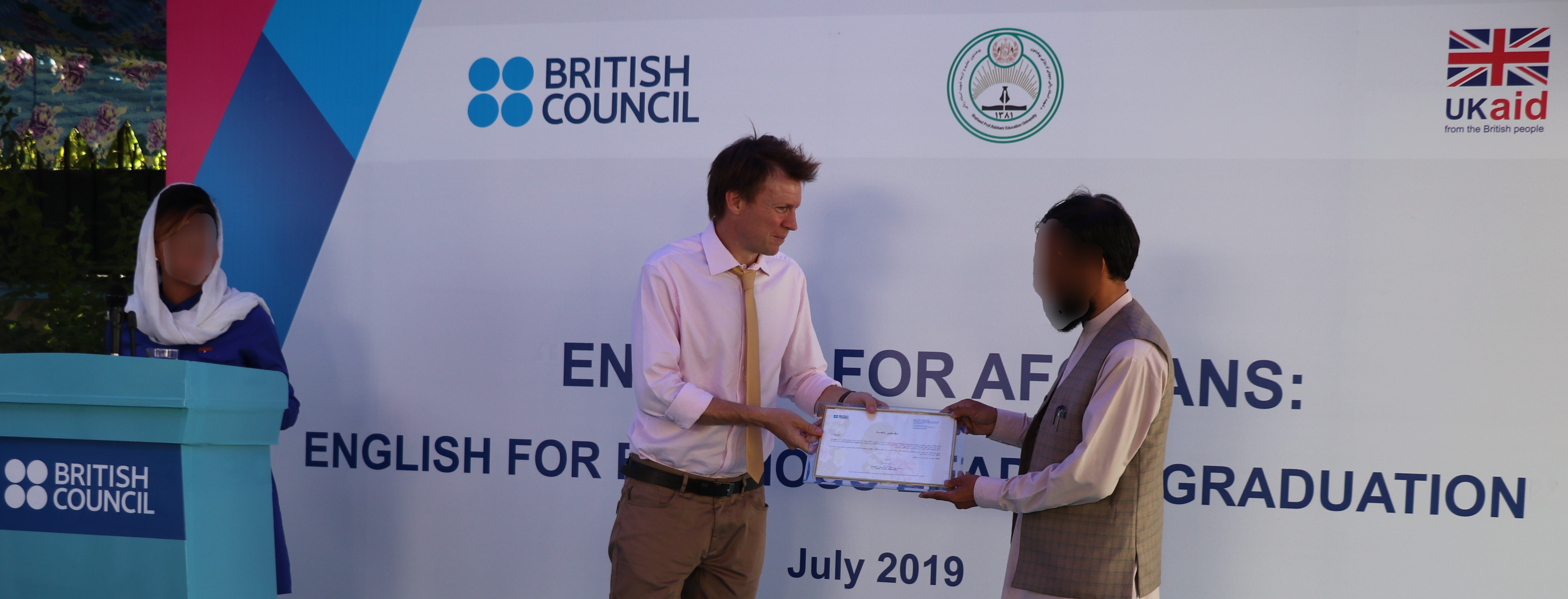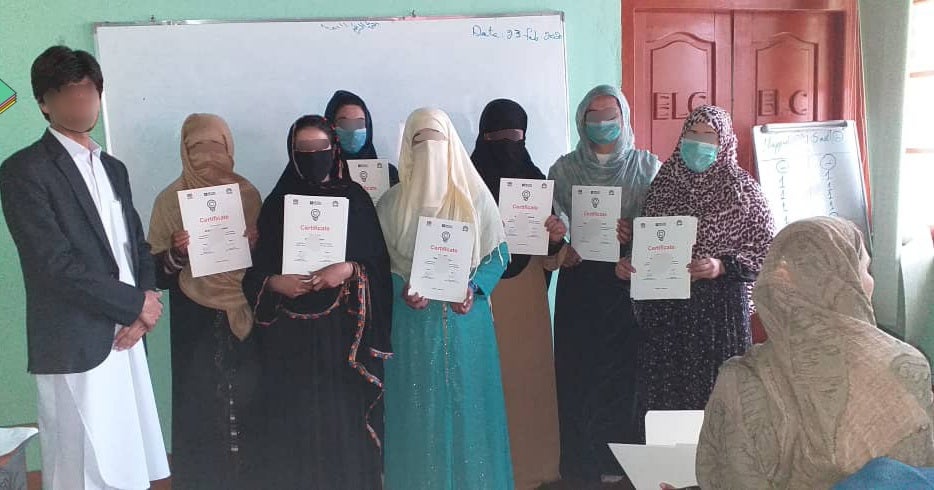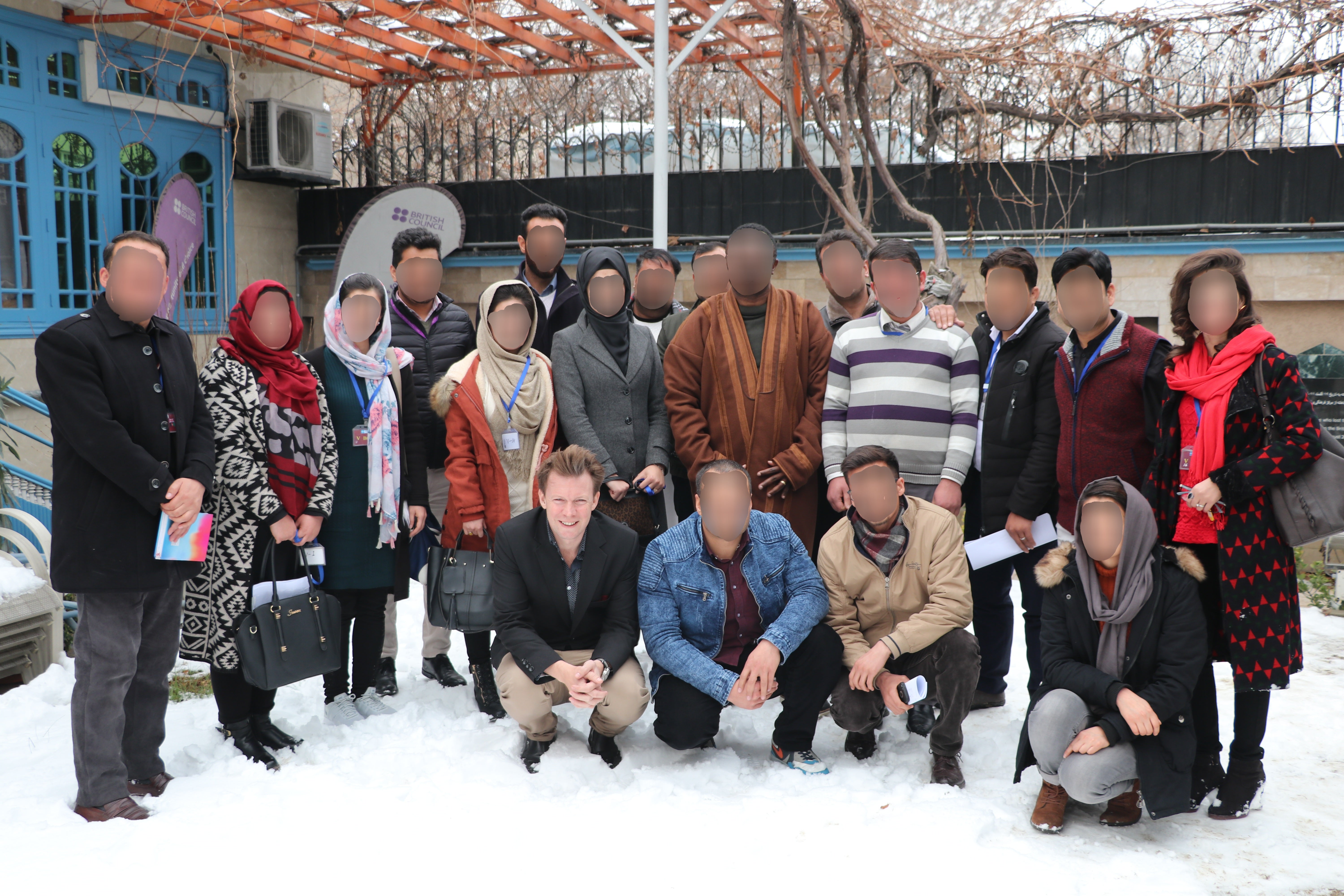British Council has failed to support Afghan staff after fall of Kabul, former director warns
Afshaneh, a teacher for the British Council for three years, said she ‘screamed with excitement’ when she was interviewed for the job: ‘Now when I think about it, I only feel regret’

The British Council has been “shoddy, dismissive and lazy” in its failure to support staff left behind in Afghanistan, a former deputy director has claimed.
Joseph Seaton, who worked in Afghanistan until the fall of Kabul 18 months ago, said 109 of his Afghan colleagues remain in the country and in hiding, at risk of being targeted by the Taliban as a result of their links to the British government.
They are all eligible for the Afghan Citizens Resettlement Scheme (ACRS) but so far, not one teacher who worked for the British Council has been brought to the UK from Afghanistan since August 2021.
Mr Seaton claims the organisation has “sought to distance themselves from their responsibilities” towards former staff.
Speaking to The Independent, he said: “I loved working for the British Council and I believe in its mission but I feel let down by how they’ve disowned the teachers and sought to distance themselves from their responsibilities.

“They keep themselves one step removed – either because they don’t want the hassle or they feel they’re just too important, too high and mighty for these lowly teachers.
“They’re relying on volunteers like me to tell them, rather than interacting directly with the teachers,” he added.
“It might sound like it’s just paperwork and bureaucracy but it’s not – it’s a life and death matter. Frankly, it’s a shoddy, dismissive and lazy approach.”
While the government is responsible for processing, transfers and resettlement, Mr Seaton argues that the British Council should be directly engaging with employees, keeping accurate records to provide ministers with the correct information and providing financial assistance for passports and visas to help their former staff escape the country.
Passports currently cost around $2,000 (£1,658) while visas are $1,000 (£829) and upwards. Both can only be obtained on the black market, increasing the risk for those in hiding.
Mr Seaton also claimed the British Council has repeatedly refused to engage with its former staff in Afghanistan, and is not aware of how many staff remain there, where they are, the status of their ACRS applications or whether any of their employees have travel documents to escape the country.
With all embassies in the country now closed, those who remain in Afghanistan say they are unable to leave and fear the Taliban will soon block the border to Pakistan, making an escape impossible.

Afshaneh* worked as a full-time teacher for the British Council for three years from 2018 to 2021, teaching civil servants, schoolchildren and religious leaders. She says the organisation was very happy with her work but since the Taliban takeover, she has had no contact or support.
“When I received the email from the British Council to invite me to the interview, I screamed with excitement,” she said. “Now when I think about it, I only feel regret. I wish I never worked for the British Council.
“They have just left us behind with nothing. We did good work for them – but on the second day of the [Taliban] takeover, it suddenly went quiet.”
Afshaneh says the British Council also failed to inform her and her colleagues that they were eligible for the Afghan Relocations and Assistance Policy (ARAP), another of the resettlement programmes led by the Ministry of Defence.
Mr Seaton says almost all of the British Council’s teachers in Afghanistan were rejected for ARAP and only told about the scheme as the Taliban launched its offensive, by which time it was too late.

Another former teacher, Mohamed*, worked for the British Council for more than a decade. He says since the evacuation, nobody from the organisation has contacted him or any of his colleagues. “We feel very angry and sad,” he said. “Actually, it has made me very sick – the stress and the worry.”
It comes after a cross-party group of MPs called for an “open, honest and detailed review” of the UK’s involvement in Afghanistan from 2001 until the chaotic evacuation in 2021. The Conservative MP Tobias Ellwood called the withdrawal a “dark chapter in UK military history”.
Earlier this month, Liberal Democrat Baroness Hussein-Ece raised the issue in the House of Lords, asking ministers what progress had been made in helping relocate former British Council staff.
FCDO minister for south Asia Lord Ahmad confirmed his department was “working closely with the British Council”, but acknowledged that “there are challenges and we need to expedite the process”.
He said 60 per cent of the 1,500 places on the relocation scheme had been allocated, with an increasing number of Afghans now in neighbouring countries but did not specify how many former British Council staff had been evacuated.
Last month the foreign office minister Leo Docherty incorrectly announced that around 100 former British Council contractors had “been given the green light to head to the border” and that 47 had been contacted to “get the ball rolling”.
Mistakes had already been made at the British Council All Party Parliamentary Group on Afghanistan in March 2022, when the British Council Deputy CEO Kate Ewart-Biggs erroneously said that “nearly all staff [have been] relocated under the ARAP scheme and some contractors relocated”. Her comments were later corrected.

Responding to the latest criticisms, a British Council spokesperson said it was “deeply concerned” by the length of time that applications were taking to process.
A spokesperson said: “Whilst we are relieved that a number of our former contractors and their families have been informed by the UK government that they are eligible for relocation to the UK, urgent action must now be taken to ensure they are granted safe passage to countries neighbouring Afghanistan.
“A significant number of our former contractors have not yet heard any outcome of their relocation applications. We are deeply concerned by the length of time it is taking for their applications to be processed.
“They have told us that they are living in increasingly desperate circumstances as the situation in the country continues to deteriorate.

“We are incredibly concerned for them and for their families’ welfare and wellbeing. We are pushing for progress with senior contacts within the UK government to ensure the earliest possible consideration of their applications.”
FCDO and Home Office spokespersons declined to comment.
Join our commenting forum
Join thought-provoking conversations, follow other Independent readers and see their replies
Comments


Bookmark popover
Removed from bookmarks